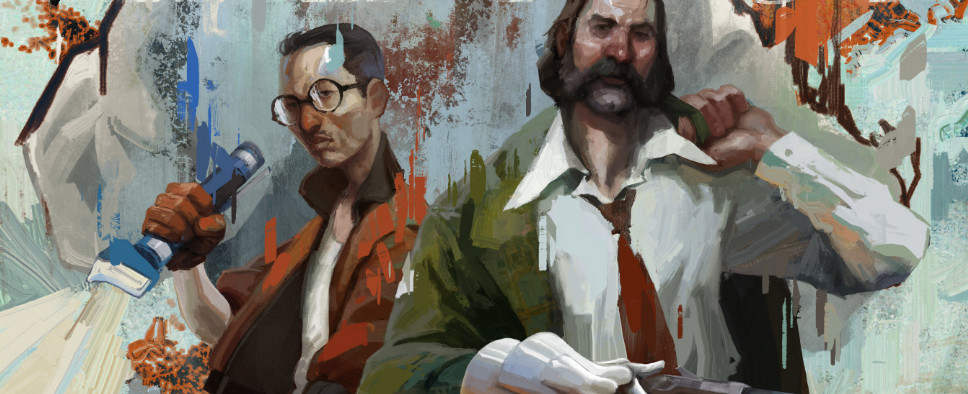Disco Elysium - Making of and Raised Expectations
-
Category: News ArchiveHits: 1540

If you’d like to learn a few things about the origins of ZA/UM Studio and the making of Disco Elysium, their debut detective RPG, you should direct your attention to this lengthy GamesRadar+ interview with ZA/UM’s Robert Kurvitz and Alexander Rostov. A few sample paragraphs:
Kurvitz, meanwhile, had met a novelist called Kaur Kender. "Once we got Kaur on board, everything really started flowing because Kaur has this superpower that's very important in capitalism. He understands money," says Kurvitz. "He's also a really good writer, and those seldom happen together." Kender helped Kurvitz self-publish a 2013 novel set in the world he'd been building called Sacred And Terrible Air. It took him five years to write and featured art by Rostov, but it failed miserably. "It sold 1,000 copies," says Kurvitz. "So after that I succumbed to deep alcoholism."
Three years earlier, Kurvitz had helped Kender out of his own alcoholism, and, anxious to help his friend in turn, Kender went to Kurvitz with a proposal. "My kids were telling me, 'Stop writing books! No one reads books! You should get into video games,'" says Kender, so he suggested, why didn't they make a game set in this world Kurvitz had been creating?
"I had never dreamt of making a video game before, because I couldn't get one piece of it into something that small and concentrated," says Kurvitz. "But then I suddenly saw the ghetto part of Revachol from up on high, and I realised that it would be perfect for an isometric game." Kurvitz told Kender he needed to discuss the idea with Rostov. "I remember going to the door to let him in," Rostov says. "He looked me dead in the eye and said, 'My friend, we failed at so many things. Let us also fail at making a video game.'"
And then, you might also want to check out this PC Gamer article where the website's editors discuss Disco Elysium’s impressive success and what it means for the RPG genre as a whole. An excerpt:
Fraser Brown: It's not just raised my expectations; it's made me worried I've turned into an RPG snob. I already roll my eyes whenever a developer announces that its RPG will have a crafting system, but now every RPG convention is making me sigh. I doubt I'm alone. After I admitted that Disco Elysium had ruined the Outer Worlds for me, I was surprised by how many people said they had the same experience, and it's not because The Outer Worlds is a crap RPG—it's a solid Obsidian adventure, but it's very familiar, and so are a lot of RPGs on the horizon that I was previously very excited about.
Games like Bloodlines 2 and Cyberpunk 2077 are beholden to a different set of expectations. They're set in already established universes and based on earlier RPGs. Bloodlines in particular has a lot to contend with, given the near mythical status of its wonky but wonderful predecessor. With Disco Elysium, there was nothing like that holding it back. The Witcher 3 also had a legacy to deal with, however, and that didn’t stop it from being exceptional. I started playing again recently and continue to be enamoured with it. The RPG systems it depends on might be ones we've seen thousands of times before, but the quality of the writing and quest design makes it timeless.
So maybe I can live with RPGs not relieving themselves of all their baggage, but I still hope Disco Elysium doesn't prove to be an evolutionary dead end, instead leading to more unconventional and adventurous games sprouting in its wake. I don't mean more Disco Elysiums, though; the genre is so broad that we should be overwhelmed with variety. That means I'm also open to being wowed by an RPG with loads of crafting and combat, as long as they're not just checking a box. There's loads of novel stuff that can be done to the more staid elements of modern RPGs.

